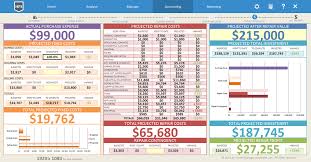Union Investment Real Estate Best Real Estate Investment Banking Groups
top
You found the top source for total info and resources for Best Places To Flip Houses on the web.
Unless you have sufficient cash to spend for a house and also all necessary improvements, you'll require some kind of loan.And loaning criteria are tighter than they utilized to be, particularly if you want a lending for a high-risk house flip.Your very first step is to check your credit scores record to learn your score.Federal legislation enables you a complimentary credit rating report from each of the 3 nationwide credit scores reporting companies every 12 months, so this won't cost you anything.
You can get your totally free credit scores record from AnnualCreditReport.com or by calling 1-877-322-8228. If you don't have fantastic credit score, it's time to begin developing a good credit rating now.Pay your expenses on time, pay for your financial obligation, and maintain your credit card balances low.
There are a lot of other ways to improve your credit score, so put in the time to do everything you can.
The higher your credit rating, the much better rates of interest you'll jump on a home mortgage.
This can save you thousands when you begin house turning, freeing up more of your loan to purchase your home itself.Last, ensure you know what injures your credit history.
As an example, obtaining way too many bank card simultaneously lowers your score.You don't want to do anything to hurt your rating in the months before you look for a finance.
lenty of Money If you intend to turn a residence, you need cash.New investors get into financial difficulty when they purchase a house without a substantial deposit, then make use of credit cards to spend for residence improvements as well as renovations.If the house doesn't market swiftly, or if remodellings set you back greater than expected, instantly the financier remains in way over their head.
If you want to turn efficiently, you require a lot of money on hand. The majority of traditional lending institutions call for a deposit of 25%, as well as conventional lending institutions are where you'll obtain the very best rate.
When you have the cash money to cover a deposit, you don't have to pay personal home loan insurance coverage, or PMI.5% and 5% of the financing, so having to pay this each month can really cut into your profits.According to TIME, many capitalists take out an interest-only lending, as well as the typical rates of interest for this type of car loan is 12% to 14%. In contrast, the interest rate for a traditional home loan is normally 4%. The even more you can pay in money, the less passion you'll incur.
There are a number of means to develop cash in your savings account. Use an automatic cost savings prepare to make saving money each month effortless.Or find means to earn money on the side and then utilize this cash to develop your cash money books for an investment.If you're acquiring a foreclosure from a financial institution or through a real estate auction, one more alternative is to take out a residence equity line of credit (HELOC), if you qualify.If you have enough in financial savings and also take care of to find a bargain-priced home, you can get the house and then obtain a tiny loan or credit line to spend for the restorations and other prices.
Even if a residence is selling for a rock-bottom cost doesn't imply you can put money in it and instantly make a fortune.Successful flippers are extremely discerning concerning the houses they select to buy.
Hiring a GC can be expensive; they’ll add 10% to 20% onto what their subcontractors charge when calculating your final bill. For example, let’s say you want to buy a home whose listing indicates its furnace was replaced 10 years ago.
A lot more Resources For Best Places To Flip Houses Right here are Some Even more Resources on Best Places To Flip Houses

Right here are Some More Information on Best Places To Flip Houses
However, the investors making this much money really know what they’re doing — and even they still go bust sometimes. In 28% of flips, the gross profit was less than 20% of the purchase price.
Right here are Some Even more Info on Best Places To Flip Houses
Also, if you're financing the acquisition, that means you're paying interest. New investors get into financial trouble when they buy a home without a sizable down payment, then use credit cards to pay for home improvements and renovations.
Here are Some Even more Details on Best Places To Flip Houses
So, although flipping houses for a profit in Canada isn’t easy, it’s definitely possible. From hiring reliable contractors to running financial estimates, you can eliminate most of the risk from your first fix and flip with just a little reading and effort. Once the work is done, you'll need to schedule inspections to make sure the property complies with applicable building codes before you can sell it. And if you use a mortgage or home equity line of credit (HELOC) to finance your flip-house purchase, only the interest is deductible. Any bid they provide should be detailed and on paper. You will quickly realize that none of them flip homes for a living.
Last Next Article
More Info
Union Investment Real Estate
Union Investment Real Estate Forming A Real Estate Investment Group
Long Distance Real Estate Investing Pdf Real Estate Investing Franchise